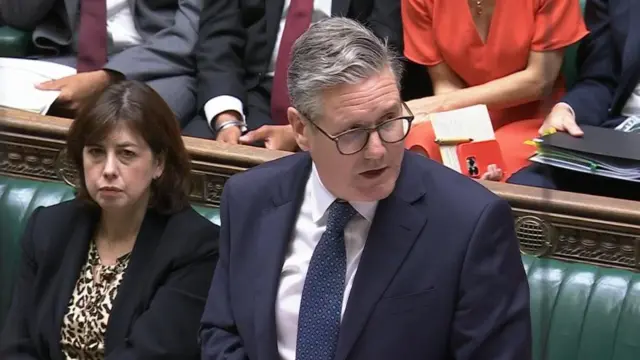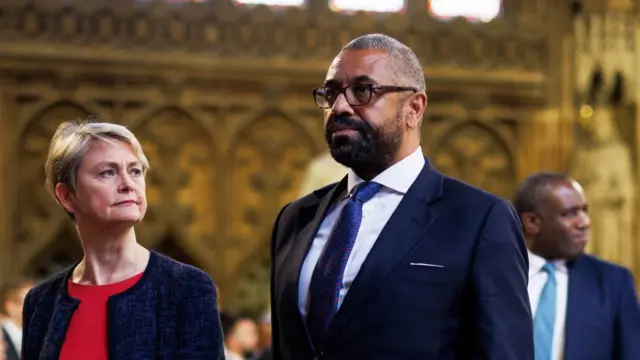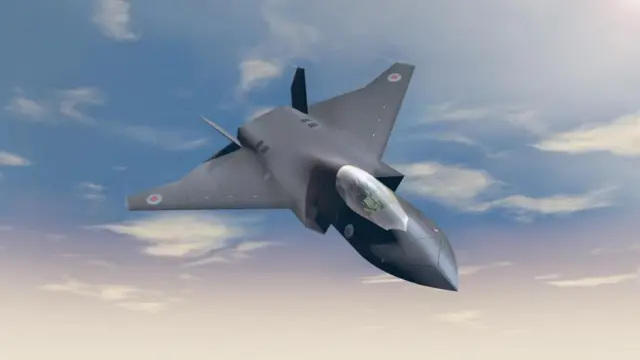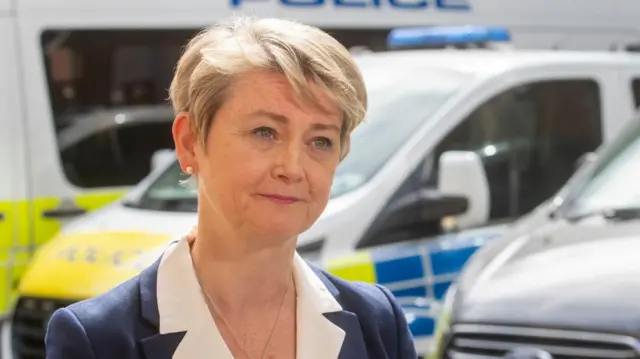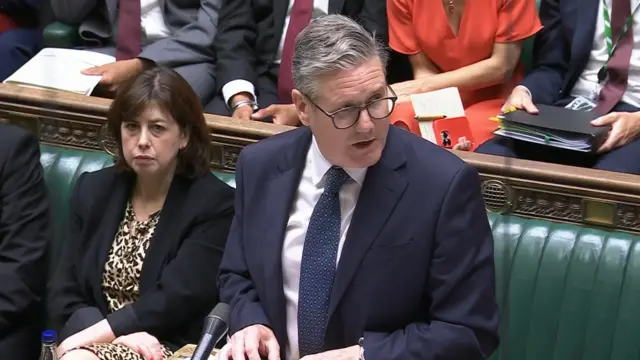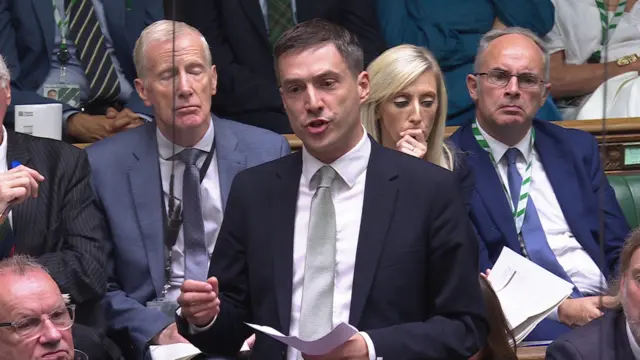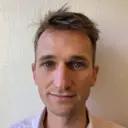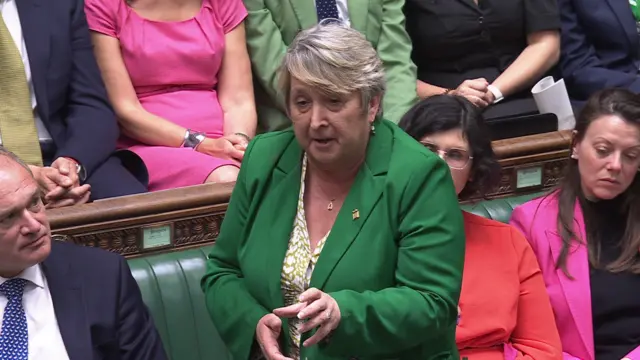What's been going on in Westminster today?published at 15:24 BST 24 July 2024
Thank you for joining our coverage of this afternoon's session of PMQs, which will be the last until MPs come back in September after the summer recess.
Today's session turned out to be a fairly low key affair, with Rishi Sunak opting not to try and score political points weeks after leading his party to a historic defeat.
We're wrapping up this live page this afternoon but we've got plenty more interesting political news and analysis for you to read:
- Chris Mason: Starmer’s ruthless streak on show again
- Starmer vows Ukraine support in low-key first PMQs
- Coverage of Eluned Morgan becoming Wales' first female leader
- James Cleverly urges Tory 'discipline' in leadership bid
- David Lammy arrives in India for trade talks
Thank you for reading along and enjoy the rest of your day.

